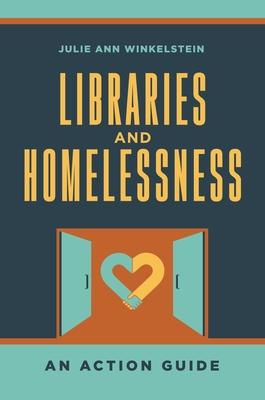Advocating a strategic approach, this book shows how to form a plan, secure funding and support, and create effective programs for adults, children, and youth who are experiencing homelessness. You'll find guidance for creating partnerships, training staff, and advocating.
Taking a holistic approach that will help you to better understand the experience of homelessness within the context of your library community, this book offers new strategies and tools for addressing the challenge of meeting the needs of the entire community, including those who are unstably housed. With basic facts, statistics, and conversations about homelessness, the author makes a case for why libraries should provide support, explains exactly which needs they may be able (or unable) to meet, and shows how this support can be a natural part of the library services you already provide. Topics discussed include trauma-informed care, harm reduction, and mental and physical health challenges; brief stories and concrete examples illustrate the principles and guidelines discussed. Citing innovative services such as Dallas Public Library's "coffee and conversation" program and San Francisco Public Library's social worker program, the book offers both food for thought and tools for action as public librarians strive to understand and meet the needs of a population that has traditionally been stereotyped and excluded.
Advocating a strategic approach, this book shows how to form a plan, secure funding and support, and create effective programs for adults, children, and youth who are experiencing homelessness. You'll find guidance for creating partnerships, training staff, and advocating.
Taking a holistic approach that will help you to better understand the experience of homelessness within the context of your library community, this book offers new strategies and tools for addressing the challenge of meeting the needs of the entire community, including those who are unstably housed. With basic facts, statistics, and conversations about homelessness, the author makes a case for why libraries should provide support, explains exactly which needs they may be able (or unable) to meet, and shows how this support can be a natural part of the library services you already provide. Topics discussed include trauma-informed care, harm reduction, and mental and physical health challenges; brief stories and concrete examples illustrate the principles and guidelines discussed. Citing innovative services such as Dallas Public Library's "coffee and conversation" program and San Francisco Public Library's social worker program, the book offers both food for thought and tools for action as public librarians strive to understand and meet the needs of a population that has traditionally been stereotyped and excluded.Paperback
$66.67